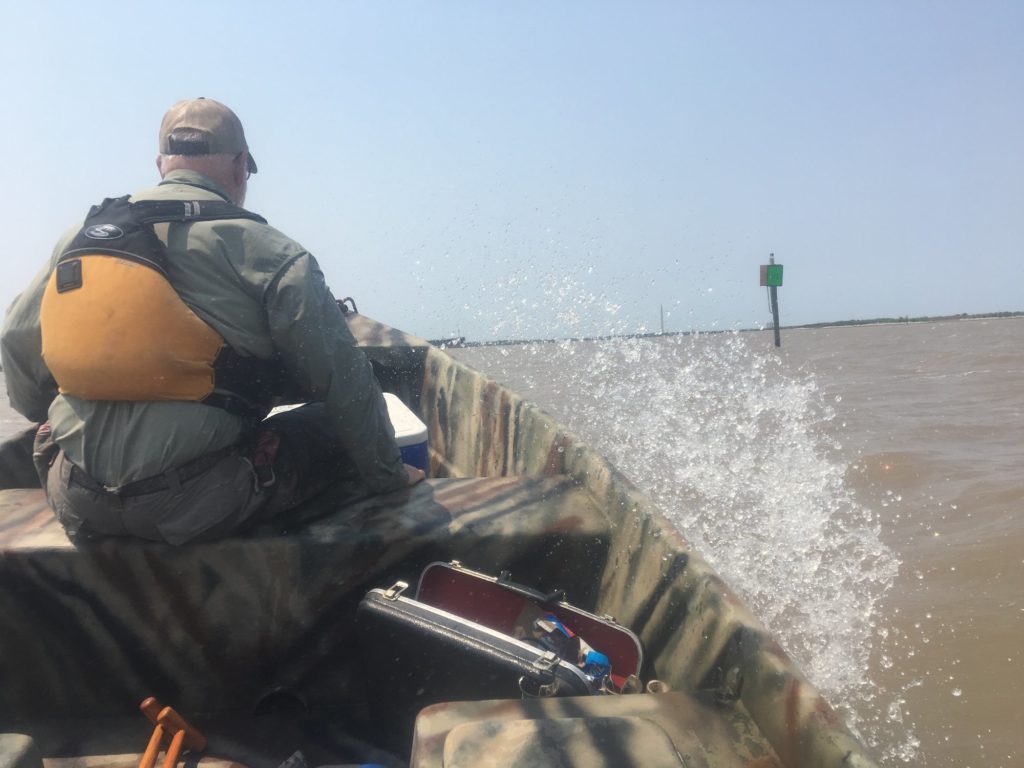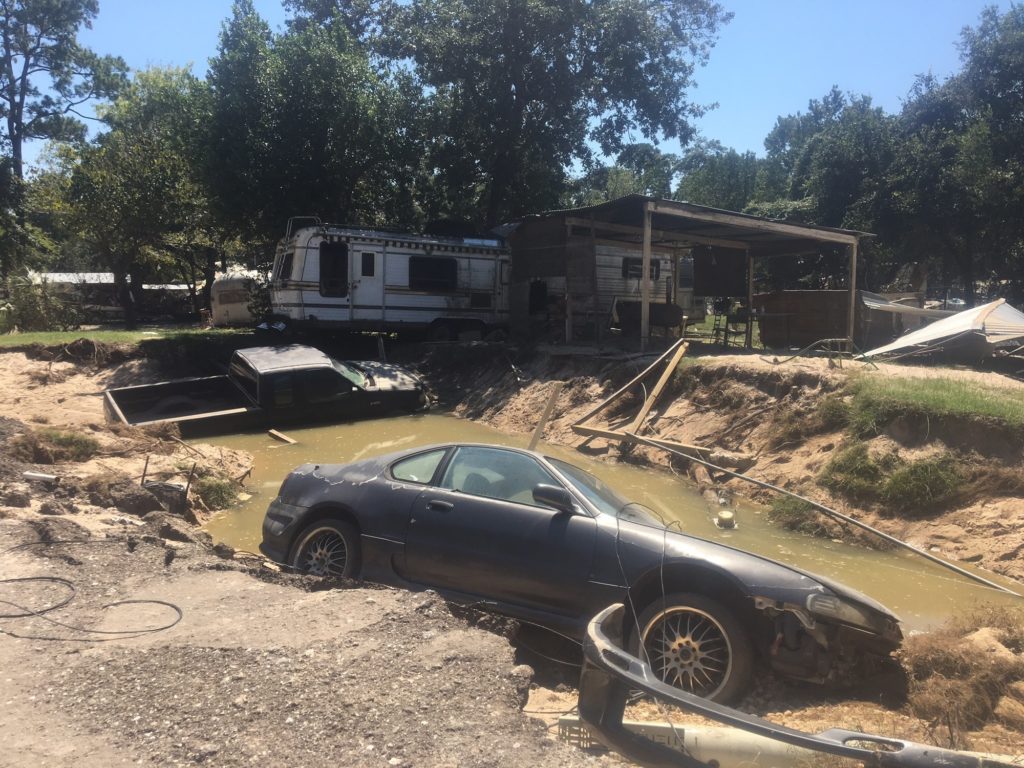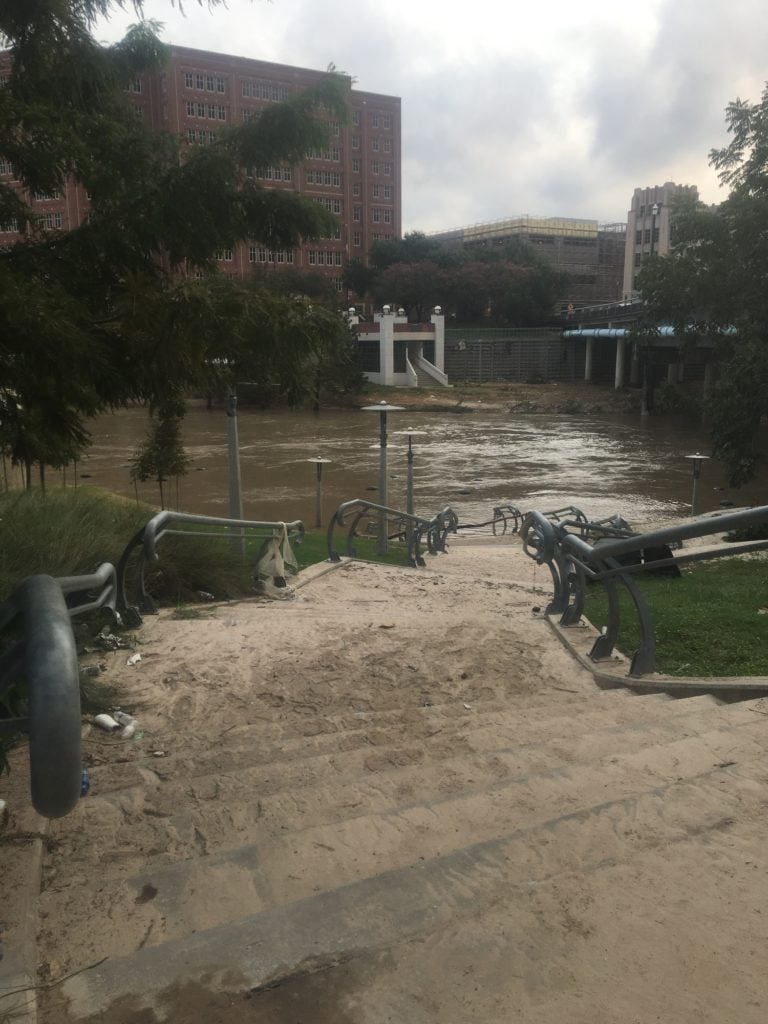A Broad and Rapid Response to Harvey’s Catastrophic Attack
By: Pete Nichols

New Bayou City Waterkeeper Jordan Macha isn’t likely to forget her first day on the job. It was the day in August that Hurricane Harvey’s fury arrived on the Texas coast. As she packed her belongings for the move from Austin to Houston, Jordan was coordinating with colleague Bruce Bodson and Waterkeeper Alliance staff on rapid-response strategies, fielding calls from the media, and, like so many others in the area, coming to grips with the devastation that Harvey would leave in its wake.
As the storm still raged and the waters rose around his home near the Brazos River, Bodson, lead scientist for Bayou City Waterkeeper, was paddling his kayak and beginning to assess the potential damage that Harvey was wreaking, particularly on the numerous Superfund sites and oil- and gas-refineries in the Houston area. This unprecedented, “1000-year” storm would drop over 52 inches of rain, leave thousands displaced, and deliver a nightmarish brew of toxic chemicals. Harvey, moreover, was the fourth 500-year storm to hit the Houston area in the last three years, raising concern that these types of storms are becoming the norm. Some experts, citing poor planning and the location of refineries brimming with toxic chemicals in flood-prone areas, are referring to these events as “disaster by design.”

Given the enormity of the storm, Bodson quickly recognized that he would need more than his trusty kayak to fully assess the damage. Waterkeeper Alliance’s Rapid Response staff, and a team of veteran Waterkeepers, made up of Savannah Riverkeeper Tonya Bonitatibus, French Broad Riverkeeper Hartwell Carson and Hurricane Creekkeeper John Wathen, a disaster specialist from Tuscaloosa, Alabama, deployed to the scene within 48 hours. With help from Mobile Baykeeper staff, they arrived with a new boat in tow for Bayou City Waterkeeper.

Bayou City’s team got out on the water and quickly began to identify and document the storm’s massive damage. Over the following weeks Bayou City Waterkeeper worked in conjunction with Waterkeeper Alliance’s Clean and Safe Energy attorney Pete Harrison and Field Investigator Christian Breen to begin a water-sampling program that would hold polluters and the regulatory agencies accountable and help ensure that affected communities around Houston’s several Superfund sites were safe as they cleaned up the wreckage from the storm. Bayou City Waterkeeper is also developing a long-term monitoring plan to advocate for improvements in the siting of hazardous facilities in flood-prone areas.
Waterkeeper Alliance continues to support the efforts of Bayou City Waterkeeper in its long road toward recovery and its efforts to better safeguard Houston-area communities from devastating, and now too frequent, storms like Harvey.